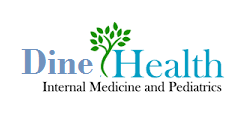In recent decades, healthcare claims processing has undergone transformative changes, moving from a labor-intensive task to a streamlined, technology-driven operation. Traditionally, this process was laden with paperwork, manual entries, and time-consuming verifications. The transition to contemporary methods highlights the importance of claims processing in healthcare, which ensures that healthcare providers are reimbursed for services rendered to patients effectively and efficiently.
The pressure to reduce administrative costs while improving service delivery has driven healthcare facilities to adopt technological solutions. This adoption marks a significant pivot toward efficiency, precision, and transparency in the billing cycle. Modern systems not only enhance the accuracy of claims processing but also expedite the entire reimbursement cycle, thereby contributing to sustaining the financial health of medical institutions. The evolution of these systems underscores a commitment to advancing healthcare’s financial operations in parallel with clinical services, ensuring a harmonious balance between patient care and the economic sustainability of healthcare institutions.
The Role of Automation in Streamlining Processes
Automation is reshaping the landscape of claims processing by reducing manual interventions and optimizing operational workflows. By offloading repetitive tasks, healthcare entities can minimize human error and significantly increase processing speeds. Automated systems handle everything from claim data entry to payment processing, ensuring fewer discrepancies and more timely settlements.
The introduction of automated systems has broader implications for operational efficiency. By facilitating a scale-up in operations without requiring proportional increases in workforce, automation allows healthcare facilities to manage peak workloads effectively. The environmental impact of reducing paper-based tasks also supports sustainability goals. Furthermore, automated systems provide real-time visibility into claims, enabling better management and strategic planning. Automation’s role extends beyond simply processing allegations; it enables technological ecosystem advancements where transparent operations and seamless interoperability are the standards.
How Artificial Intelligence is Transforming Claims
Artificial Intelligence is revolutionizing healthcare claim processing. By employing AI, attention transitions from tedious manual examinations to advanced predictive analytics and pattern detection, significantly improving the detection of mistakes and fraudulent actions. AI-driven algorithms can analyze extensive datasets to identify irregularities and deliver practical insights that conventional techniques could never achieve.
AI applications in healthcare offer unparalleled accuracy and speed in billing processes, creating a reliable framework for improving patient outcomes through effective resource allocation. It also enables real-time feedback and data-driven decision-making, allowing for ongoing process refinement and optimization. The continuing educational feature of artificial intelligence, where systems advance based on current data trends to improve efficiency, guarantees that as the number and intricacy of healthcare claims increase, AI-powered systems stay flexible and strong. In addition, AI can significantly decrease administrative expenses by automating standard tasks, allowing human personnel to concentrate on more intricate and valuable undertakings. Utilizing machine learning techniques, AI can identify new fraud trends and foresee possible problems ahead of time, preventing financial setbacks and regulatory breaches. The real-time capabilities of AI also enhance the patient experience by ensuring faster claim processing and quicker reimbursements, reducing wait times and increasing satisfaction. Additionally, AI-driven systems can integrate with existing healthcare technologies, streamlining workflows and enhancing interoperability across various platforms. As artificial intelligence progresses, its importance in handling claims will grow significantly, fostering additional innovation and establishing updated benchmarks for precision and operational effectiveness.
Importance of Data Security in Claims Processing
The adoption of digital processing technologies in healthcare necessitates the implementation of stringent data security measures. Protecting personal health information (PHI) from unauthorized access is a top priority, particularly in light of increasing cyber threats targeting healthcare environments. Secure data handling practices ensure compliance with HIPAA regulations and preserve patient trust. HIPAA guidelines are a foundational framework for safeguarding sensitive health information.
Healthcare organizations are augmenting their cybersecurity posture through encryption technologies, regular audits, and multi-factor authentication processes to protect against potential data breaches. Addressing vulnerabilities requires continually improving security measures, adapting to threats, and ensuring systems remain secure and resilient against unauthorized intrusions. Maintaining a robust cybersecurity framework is essential for fostering patient confidence and safeguarding the integrity and availability of healthcare data.
Enhancing Patient Satisfaction through Efficient Processing
Improving the efficiency of claims processing correlates directly with elevated levels of patient satisfaction. By reducing delays in claim settlements, healthcare providers can ensure patients experience smoother billing processes, enhancing their overall satisfaction and trust. Speed, accuracy, and transparency in handling claims foster positive patient engagement, reducing stress associated with billing concerns.
Empowering patients with tools like online portals, where they can easily track claim statuses and understand their billing details, further enhances their experience and trust in healthcare services. As the emphasis on patient-centric care grows, healthcare providers understand the importance of meeting medical needs and ensuring seamless financial interactions. The focus on refining claims processes demonstrates a commitment to patient satisfaction, highlighting the critical intersection between financial operations and service delivery in modern healthcare frameworks.
The Shift of Healthcare Providers’ Roles
The integration of advanced technologies in claims processing is redefining the role of healthcare providers, liberating them from routine administrative burdens and enabling them to concentrate on patient care and strategic priorities. As automation and AI handle the bulk of claims processing, healthcare professionals can engage in activities directly impacting patient outcomes, such as personalized care planning and resource optimization.
This shift allows providers to leverage their expertise in ways that align more closely with patient-care missions, resulting in enhanced service delivery models and greater job satisfaction. The transition emphasizes the importance of healthcare professionals as strategic partners in the operational success of healthcare facilities, ensuring that their contributions extend beyond the traditional clinical settings. Ultimately, this transformation redefines provider roles and enriches the healthcare environment, promoting a culture of continuous innovation and improvement.
Challenges and Solutions in Modern Claims Processing
Adopting modern technologies in claims processing comes with challenges, including technological integration issues and the need to overcome institutional resistance to change. Incorporating new systems into current infrastructure can be challenging, requiring thorough planning and execution.
Healthcare institutions can tackle these obstacles by establishing organized training initiatives to improve employee proficiency with emerging technologies. Furthermore, a gradual strategy for implementing technology enables organizations to shift slowly, reducing interruptions to existing operations. Promoting a culture of transparent communication and teamwork among different departments can assist in overcoming pushback, creating a setting where innovation flourishes and is embraced throughout the organization.
Future Trends to Watch in Claims Technology
Emerging technologies such as blockchain and enhanced analytics will heavily influence the future of healthcare claims processing. Blockchain technology promises to bring unparalleled transparency and security to claims processing through immutable, tamper-proof records. Its potential to streamline authentication and verification processes positions it as a promising tool for healthcare claims integrity.
Advanced data analytics will continue to shape how healthcare organizations approach decision-making and optimization, allowing for more precise forecasting and resource allocation. As these technologies mature, they will enable organizations to extract deeper insights, enhancing operational efficiency and patient satisfaction. Remaining agile and adaptive to such innovations will allow healthcare entities to maintain competitive advantages and ensure optimal service delivery now and in the future.
Conclusion and Final Thoughts
The evolution of claims processing through technology is poised to redefine the foundations of the healthcare industry. By embracing automation and AI, healthcare providers can optimize their processes, enhance accuracy, and improve patient satisfaction while securing data and maintaining compliance. As organizations prepare for forthcoming technological advances, such as blockchain and advanced analytics, the potential for further transformation is limitless. The integration of these technologies promises to usher in an era of unprecedented efficiency and effectiveness, creating a new standard of excellence in healthcare claims processing and setting a benchmark for future innovations. Moreover, the automation of claims processing can significantly reduce human errors, speed up claim approvals, and reduce the backlog of pending cases. With AI-powered systems, claims can be analyzed in real time, allowing for faster decision-making and ensuring patients receive timely reimbursements. Blockchain technology has the potential to enhance transparency and security, providing a tamper-proof record of every transaction and ensuring the integrity of sensitive data. As these technologies continue to evolve, healthcare providers will be able to personalize the claims process, offering tailored solutions that cater to the unique needs of individual patients. Ultimately, the seamless integration of these innovations will streamline the administrative side of healthcare and improve the overall experience for patients, providers, and insurers alike.


